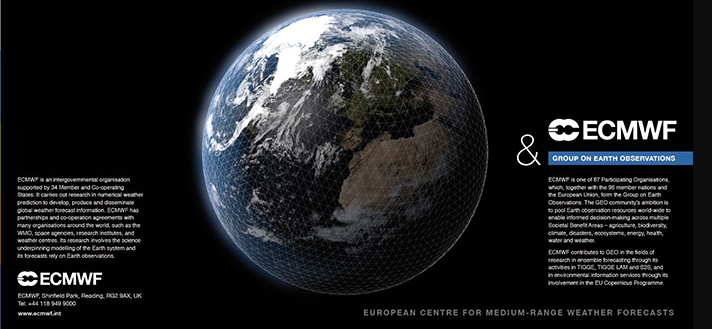TOPIC: Earth System Modelling at ECMWF
Nils Wedi
May 25, 2017 | 321-Pickering Auditorium, 2:30 pm

About Nils Wedi

The gradual progress in global numerical weather prediction at the European Centre for Medium Range Weather Forecasts (ECMWF) includes a systematic approach to assess and quantify the associated forecast uncertainty by means of high-resolution ensembles of assimilation and forecasts. This involves simulations with billions of gridpoints, the continuous assimilation of billions of observations, rigorous verification, validation and uncertainty quantification, and it involves increasing model complexity through completing the descriptions of the global water and carbon cycles. The research requires a deeper understanding of multi-scale interactions within the atmosphere and oceans, and through interactions at the interfaces of atmosphere, land surface, ocean, lakes, and sea-ice. All this is necessary to increase the fidelity of both daily forecasts and of European Copernicus Services, e.g. through the provision of state-of-the-art atmospheric monitoring services, warning systems for flood and fires, and providing reanalyses. A particular challenge arises from ensuring timeliness and energy efficiency for these extreme-scale applications.
Dr Nils P. Wedi joined ECMWF in 1995. He received his PhD degree from the Ludwig-Maximilians-Universität München. His career at ECMWF encapsulates a diverse range of work both technical and scientific. He has been a Principal Scientist since 2010 and is the Head of the Earth System Modelling Section that addresses all aspects of scientific and computational performance relating to ECMWF's forecast model and the ensemble forecasting system. He develops strategies to secure the scalability of the model on future high-performance computing systems. He is the scientific coordinator of the European H2020 ESCAPE project to address the challenges of rising energy cost for computing towards affordable, exascale high performance simulations of weather and climate, and he is a member of the WMO working group on numerical experimentation (WGNE).
